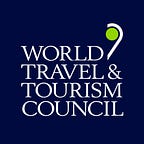Tourism as a driver for Peace
For the first time empirical evidence has confirmed the sector as a driver of peace.
Countries with sustainable and open tourism sectors are more resilient to the challenges posed by conflicts. This power to be a force for good must be harnessed and preserved by policy makers and governments.
Alongside the hefty discussion around terrorism and security, a parallel theme of ‘peace’ emerged. New research by WTTC and the Institute of Economics and Peace (IEP), due to be released soon, will show for the first time that Travel & Tourism is a driver of peace. Ensuring that governments, consumers and wider society understand the sector’s power to be a force for good will be critical to the future not only of the sector itself but of society as a whole.
According to Steve Killelea, Founder of the Institute of Economics and Peace, peace is a prerequisite to the survival of society. In a world whose challenges — climate change, water shortages, decreasing biodiversity — are underpinned by overpopulation, without peace there will never be the trust, cooperation, and inclusiveness to solve these problems. Peace is not simply the antithesis to conflict but something that needs to be understood, studied, and measured in itself. The IEP’s Global Peace Index does just that, and alongside WTTC a new Tourism Index has been developed to look at the relationships between them.
Delegates received a first-hand insight into peace and forgiveness in action from the inspirational Raisuddin Bhuiyan. The victim of a racist attack in Dallas back in 2001, Rais lost sight in one eye. Rather than turning to hate and promulgating violence, he has channelled his reaction positively by setting up an NGO, World Without Hate, which promotes cross-cultural empathy through education and supports the victims of the crimes that result when this empathy is lacking.
In his words, “hate and revenge may bring temporary satisfaction but never peace or solution, only more pain or suffering”.
Tourism as a solution where other industries have failed was showcased by Tourism for Tomorrow Destination Award winner Parkstad Limburg from the Netherlands. A 110km square, struggling, former coal mining district has been transformed into a viable, sustainable tourism destination. From zero tourism in 1998, the region now has a tourism turnover of nearly 370 million euros and supports 5800 full time jobs. The ‘black to green’ makeover has included new attractions, public spaces, and walking and cycling routes, all engrained in sustainable architecture and infrastructure — a shining example of how tourism can be used to repair a region’s natural assets and regenerate a local economy.
A further example of tourism as a force for good was that of Community Award winner Expediciones Sierra Norte from Mexico’s Oaxaca region. For 22 years, this community ecotourism project has been working with community leaders to develop biking and walking trails that offer tourists an authentic experience whilst preserving indigenous knowledge. Ownership is shared and profits are redistributed throughout the communities visited. Visitors have grown from just 20 in 1995, to over 17,000 last year. Expediciones Sierra Norte has successfully shown how the economic benefits of tourism can be used to bind a community closer together and help to protect what is important to the people who live in these remote mountain villages.
Mexico is one of the world’s less peaceful countries (according to the IEP Global Peace Index), and the example of Expediciones Sierra Norte shows how tourism can bring communities and the wider world together for economic and social good, even in a context of security concerns and violence.
As the global community focuses more and more on security, and we see the very real risk of inward looking, protectionist responses, the whole Travel & Tourism sector needs to rally behind the empirical evidence that proves that our sector is a force for good in the world, and ensure that this message is delivered coherently and convincingly.
For an overview of the entire Global Summit, please read our Summit summary: Six ways Travel & Tourism can embrace the future.
For more about the Global Summit in Dallas, please visit our website.
